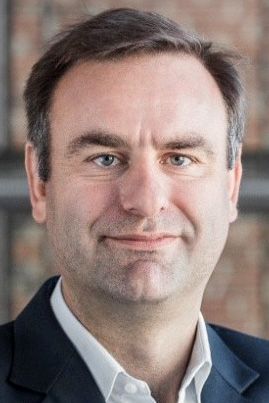/ Featured Blogs
Gaming and Broadband Demand
 Broadband usage has spiked across the US this year as students and employees suddenly found themselves working from home and needing broadband to connect to school and work servers. But there is another quickly growing demand for broadband coming from gaming. We've had online gaming of some sort over the last decade, but gaming has not been a data-intensive activity for ISPs.
Broadband usage has spiked across the US this year as students and employees suddenly found themselves working from home and needing broadband to connect to school and work servers. But there is another quickly growing demand for broadband coming from gaming. We've had online gaming of some sort over the last decade, but gaming has not been a data-intensive activity for ISPs.
- By Doug Dawson
- Comments: 0
- Views: 8,486
The Countdown Has Started – Here Come One-Year Digital Certificate Life Cycles
 Apple announced its decision to trust only one-year digital certificates on its Safari browser in February 2020. This decision created a domino effect, with Mozilla and Google following suit; certificate providers announced they would not issue two-year certificates after Aug. 19, 2020. We wrote an article in March to help brands to prepare for this change.
Apple announced its decision to trust only one-year digital certificates on its Safari browser in February 2020. This decision created a domino effect, with Mozilla and Google following suit; certificate providers announced they would not issue two-year certificates after Aug. 19, 2020. We wrote an article in March to help brands to prepare for this change.
- By Ken Linscott
- Comments: 0
- Views: 8,144
Call for Participation – ICANN 69 DNSSEC and Security Workshop, October 2020
 If you are interested in presenting at the ICANN 69 DNSSEC and Security Workshop during the week of 17-22 October 2020, please send a brief (1-2 sentence) description of your proposed presentation to dnssec-hamburg@isoc.org by 27 August 2020. We are open to a wide range of topics related to DNS, DNSSEC, DANE, routing security, and more. There are some ideas in the Call for Participation below, but other ideas are definitely welcome, too!
If you are interested in presenting at the ICANN 69 DNSSEC and Security Workshop during the week of 17-22 October 2020, please send a brief (1-2 sentence) description of your proposed presentation to dnssec-hamburg@isoc.org by 27 August 2020. We are open to a wide range of topics related to DNS, DNSSEC, DANE, routing security, and more. There are some ideas in the Call for Participation below, but other ideas are definitely welcome, too!
- By Dan York
- Comments: 0
- Views: 10,855
Too Little, Too Late? Why ICANN’s Proposed WHOIS Access System Isn’t Worth It
 After two years of grueling, complex and contentious debate, the ICANN EPDP team delivered its Phase 2 Final Report on July 31st, 2020. Unfortunately, and disappointingly, the policy recommended for the so-called "System for Standardized Access/Disclosure" (SSAD) fails to meet the needs of the users it supposedly is designed to benefit.
After two years of grueling, complex and contentious debate, the ICANN EPDP team delivered its Phase 2 Final Report on July 31st, 2020. Unfortunately, and disappointingly, the policy recommended for the so-called "System for Standardized Access/Disclosure" (SSAD) fails to meet the needs of the users it supposedly is designed to benefit.
- By Alex Deacon
- Comments: 3
- Views: 11,192
The TikTok Ban in Context
 Donald Trump recently issued an executive order banning TikTok on the grounds that it was necessary to deal with the national emergency he had declared in an earlier executive order. He says he is concerned that TikTok might turn user's "information such as location data and browsing and search histories" over to the Chinese government. Trump does not site evidence of TikTok having shared data with China and TikTok says they have never shared user data with the Chinese government...
Donald Trump recently issued an executive order banning TikTok on the grounds that it was necessary to deal with the national emergency he had declared in an earlier executive order. He says he is concerned that TikTok might turn user's "information such as location data and browsing and search histories" over to the Chinese government. Trump does not site evidence of TikTok having shared data with China and TikTok says they have never shared user data with the Chinese government...
- By Larry Press
- Comments: 1
- Views: 8,263
A CENTR White Paper on Creating More Standardized and Streamlined Domain Registry Lock Services
 CENTR has published a white paper separating registry lock services into two standardized models. This categorization and the included recommendations can help top-level domain registries (re)design their registry lock services. The aim of the paper is to reduce fragmentation in implementation between registries to explain the value of registry lock to domain holders more easily.
CENTR has published a white paper separating registry lock services into two standardized models. This categorization and the included recommendations can help top-level domain registries (re)design their registry lock services. The aim of the paper is to reduce fragmentation in implementation between registries to explain the value of registry lock to domain holders more easily.
- By Erwin Lansing
- Comments: 0
- Views: 7,791
Reasons Why You Should NOT Apply for a .BRAND New gTLD
There are two kinds of new domain name extensions: those dedicated to selling domain names through the network of accredited Registrars and those dedicated to a personnel use. I call these "dotBRANDs" or ".brand" new gTLDs since they are used - most of the time - by Trademarks for their own benefit. This article focuses on .BRAND new generic Top-Level Domains. In the ICANN vocabulary, these are "Registry Agreements with Specification 13".
- By Jean Guillon
- Comments: 0
- Views: 11,092
Beyond the Interweb
 Today's Internet is a network of networks and seen through the lens of the web. We need to look beyond the engineering history to see the Internet in the context of the broader vision of JCR Licklider, an acoustic psychologist, and his vision of man/computer symbiosis... JCR Licklider would've been thrilled to see such a powerful man-machine symbiosis becoming so normal and having it work so well. Lick, as he was called, can be considered the grandfather of the Internet.
Today's Internet is a network of networks and seen through the lens of the web. We need to look beyond the engineering history to see the Internet in the context of the broader vision of JCR Licklider, an acoustic psychologist, and his vision of man/computer symbiosis... JCR Licklider would've been thrilled to see such a powerful man-machine symbiosis becoming so normal and having it work so well. Lick, as he was called, can be considered the grandfather of the Internet.
- By Bob Frankston
- Comments: 2
- Views: 9,698
Why Platform Regulation Concerns ICANN
 With the publication of the Australian Governmental report on Digital Platforms1and in the light of the ongoing work on the EU's Digital Services Act, the spotlight of policymaking is on platforms such as Google, Facebook and Amazon. It is natural that members of the ICANN community want to discuss the role of platforms within the ICANN framework, but sadly and predictably, the usual bylaws jockeys and keepers of the true ICANN faith were quick to stifle the conversation.
With the publication of the Australian Governmental report on Digital Platforms1and in the light of the ongoing work on the EU's Digital Services Act, the spotlight of policymaking is on platforms such as Google, Facebook and Amazon. It is natural that members of the ICANN community want to discuss the role of platforms within the ICANN framework, but sadly and predictably, the usual bylaws jockeys and keepers of the true ICANN faith were quick to stifle the conversation.
- By Klaus Stoll
- Comments: 2
- Views: 7,861
How Can Greater Security, Safety and Trust in the Internet Be Created?
 In the coming days, the Internet Governance Forum Dynamic Coalition on Internet Standards, Security and Safety will be announced on the IGF website. The following is an invitation to participate, share ideas and best practices, the willingness to take on a new approach towards mass deployment of internet standards and ICT best practices. Feel free to reach out to us and start working towards a kick-off meeting at the global, virtual Internet Governance Forum in November.
In the coming days, the Internet Governance Forum Dynamic Coalition on Internet Standards, Security and Safety will be announced on the IGF website. The following is an invitation to participate, share ideas and best practices, the willingness to take on a new approach towards mass deployment of internet standards and ICT best practices. Feel free to reach out to us and start working towards a kick-off meeting at the global, virtual Internet Governance Forum in November.
- By Wout de Natris
- Comments: 0
- Views: 7,945